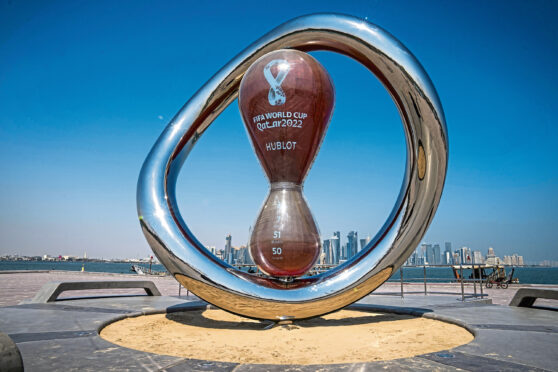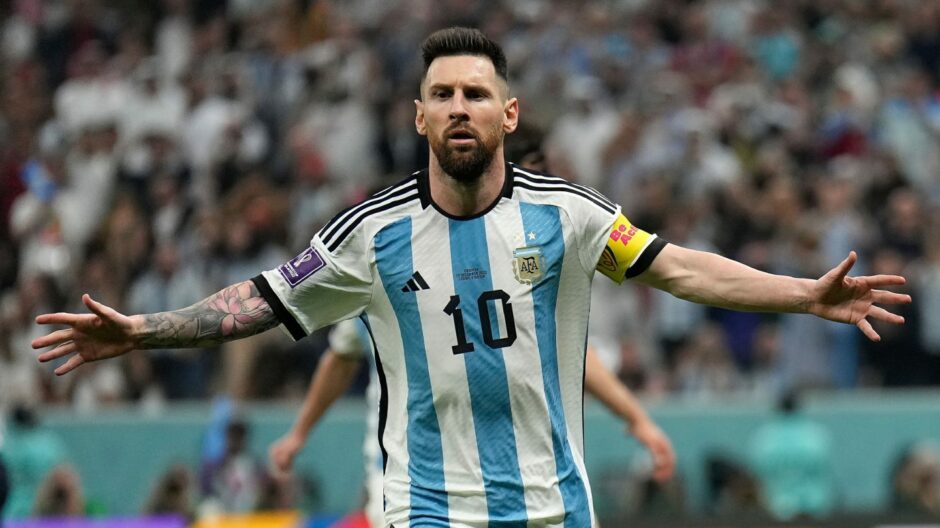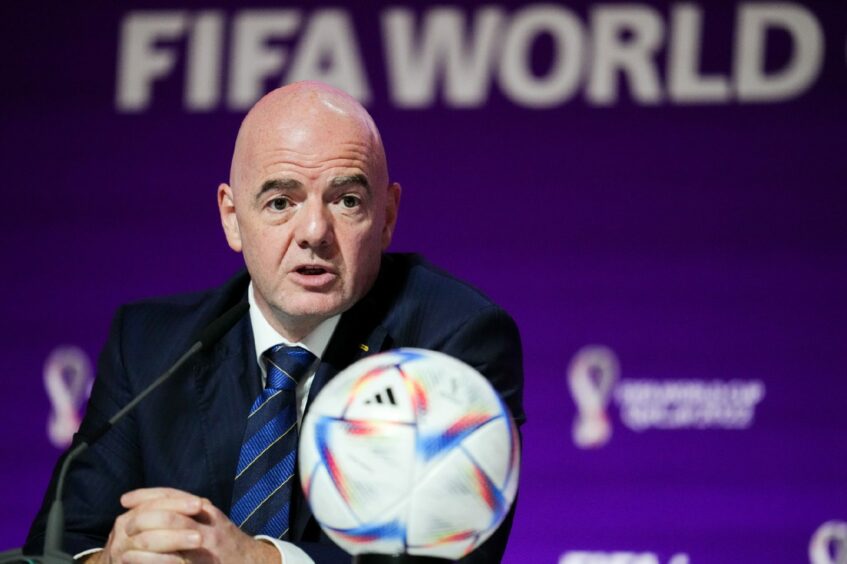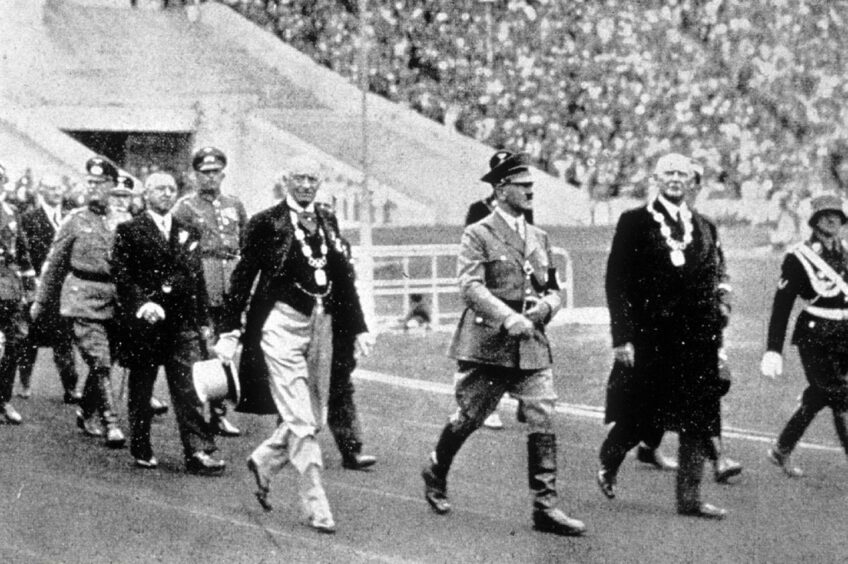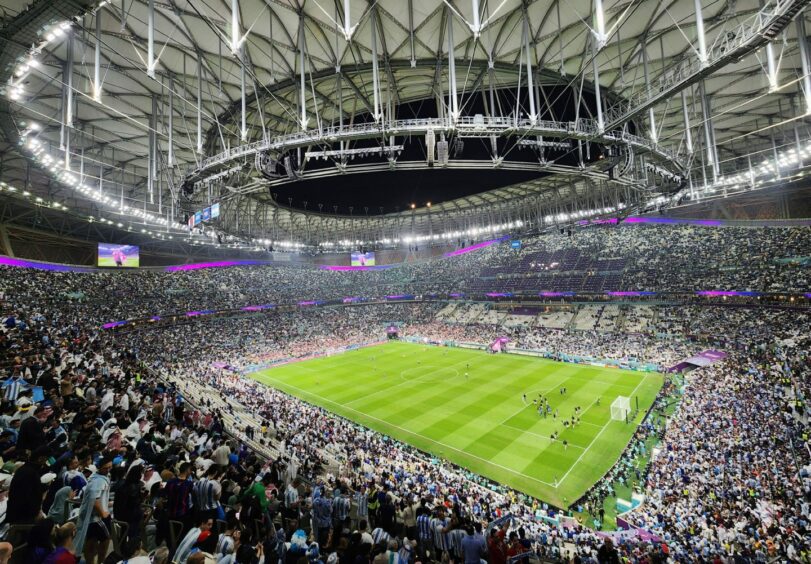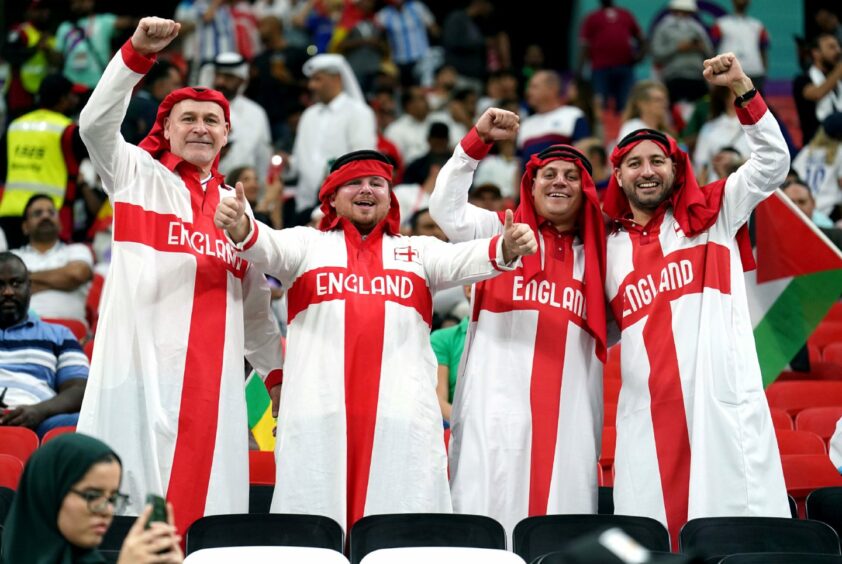Whether it’s football, rugby, cricket… hell, it could be two snails edging up a wall if one was wearing Scotland’s colours, I’ve always been like a kid at Christmas when it comes to sporting World Cups.
The thrill from watching the best teams in the globe go toe-to-toe, the sense of being part of a collective shared experience and the anticipation of shocks and surprises on the journey have usually conspired to make me an aficionado of these events.
But here we are, on the eve of the World Cup final in Qatar, and I haven’t watched a ball being kicked for the last month or however long the competition has dragged on.
Whether tuning out of the live action, skipping the highlights programmes or ignoring the hysteria on countless news programmes, I’ve seen none of it and missed none of it.
What was the protest all about?
I’ve met plenty of people who have responded with a shrug to my boycott with variations on a theme of: “I don’t like the Qatar regime, but I love football” or “It’s sport, mate, not politics”. Some have even bought the argument that Fifa can help change human rights for the better with the spotlight shone on the host nation.
But, of course, this tournament has been tainted by cynical cash and commercial considerations ever since the governing body agreed to rip up the international football schedules to accommodate a situation where the World Cup final is being staged on December 18 – something which, in itself, feels symptomatic of the corrupt nature on sports bodies whenever they are confronted with a tricky moral conundrum.
After all, it’s not that long since Fifa president Gianni Infantino raised eyebrows when he attempted to show empathy with marginalised groups by telling the media at a pre-event conference in Qatar: “I feel gay… I feel like a migrant worker.” Ha ha.
Everybody knew it was wrong
I realise that the majority of supporters have watched the games for their own sake, blissfully oblivious to how the build-up to the World Cup comprehensively exposed the failings of the organising country, forensically outlined their shoddy practices which led to the deaths of thousands of construction workers and starkly exposed the emirate’s refusal to enter the 21st Century when it came to tackling inequality.
So it probably passed them by that homosexuality in Qatar is illegal and punishable by up to three years in prison. And we can’t expect them to have read a report from Human Rights Watch which documented many cases in September of Qatari security forces routinely arresting LGBTQ+ people and subjecting them to “ill-treatment in detention”.
One “smart” chap even messaged me to retort that homosexuality was a crime in Britain when England won the World Cup in 1966 and “you didn’t complain about that”. That I didn’t, but there again, I was learning the alphabet at the time.
But the tone was clear. What was I complaining about? Haven’t the World Cup and the Olympics always been a little bit politically motivated and manipulated, whether in providing a platform for Adolf Hitler in Berlin in 1936 or the Soviets in Moscow in 1980, or offering General Leopoldo Galtieri and his henchmen the chance to draw a veil over their totalitarian excesses, as happened at the 1978 World Cup in Argentina?
Two wrongs don’t make a right
Okay, nobody’s pretending that underhand deals and shady transactions haven’t blighted sport for decades. But here’s the rub. When I was growing up in the 1970s, South Africa was rightly treated as a pariah state by many people because of its abhorrent apartheid policies. And there was a way of punishing them.
That explains why you didn’t see them at the Olympics and why there were so many demonstrations when their rugby players came to Britain. The regime was repellent, so many of refused to buy any of their products. Oranges, pineapples, other fruit – if we checked the label and discovered it came from the Republic, it stayed on the shelf.
We kept this up year after year. When Zola Budd competed at the 1986 Commonwealth Games in Edinburgh, the African nations boycotted the event. A few years later, Nelson Mandela was released from prison and matters changed dramatically.
Protest has to be sustained
This wouldn’t have happened if we had all done what most of the media pundits did in Qatar. Which, effectively, was to wax hypocritical, a la Gary Lineker, with criticism and condemnation, but not to the extent of refusing to be there with his vast BBC entourage.
Imagine if we had done that in the 70s. Stopped buying Cape oranges for a week and then reverted to the man from Del Monte again! What difference would that have made? Absolutely nothing is the short answer.
So I’m glad I bodyswerved the World Cup. I’d have done the same if Scotland had been there, and Rod Stewart even turned down £1 million to be at the opening ceremony. It’s principle, not patriotism, which matters here – and it’s disappointing, but predictable, that so few of my colleagues recognised that.
Three Controversial Sporting Events
1936 Olympics: Held in Berlin as the Nazis took charge of Germany, these became a propaganda showpiece for Adolf Hitler with the rest of the world watching. However, his belief in Aryan supremacy was dispelled by the startling exploits of American track and field star Jesse Owens, who won four gold medals and dominated the sprints.
1978 World Cup: When the tournament began in June, Argentina was in the midst of a bloody military dictatorship, following the arrest two years earlier of democratically-elected president Isabel Peron. The football, though, provided a huge distraction, with Scotland creating all the wrong headlines in the early stages and the hosts winning the competition for the first time.
1980 Olympics: These sparked huge controversy and calls for a boycott of the Moscow Games after the Soviet Union invaded Afghanistan at the end of 1979. The Americans and several of their allies refused to participate and Margaret Thatcher wanted the British team to pull out. Most of the GB athletes rejected that argument.
